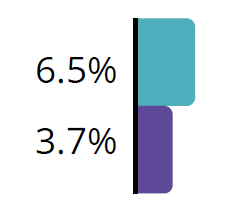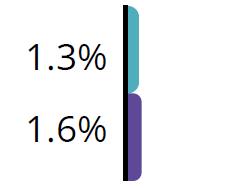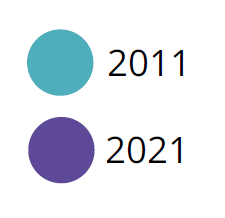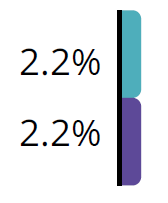Reading’s Joint All Age Carers’ Strategy 2024 – 2027
Reading’s Joint All Age Carers’ Strategy 2024 – 2027 – PDF inaccessible version
A Reading Carer’s Foreword
Will a strategy help me…?
Carers’ needs are so multifaceted and unseen by those who don’t have caring responsibilities, therefore it is essential to have a strategic approach to helping meet their needs. Carers needs can be identified by primary health, early years support, education, secondary healthcare and the voluntary and community sector as well as employers. All of these sectors interact with Carers but unless there is a joined up, co-produced strategy and action plan none of these organisations, or the people working in them, will ever understand the needs of a carer.
So, what are those needs? They could be poorer mental health, poorer physical health, isolation, financial stress, distressed households where people often don’t feel safe, children and young people who are at risk of earlier death than their parents… I could go on. Are we impacted by health inequalities? Yes… all carers are hugely affected by health inequalities in Reading.
If you really want to understand, see and hear carers – get together and let this strategy just
be the start of building Reading into a great place for carers to live, and thrive. All the people we care for will benefit too!
…so yes a strategy might help.
This foreword was written by a Reading carer who has been involved in the development of this strategy. They wish to remain anonymous.
With Thanks to Members of the Carers’ Strategy Working Group
- Karen O’Leary – Carers Lead at Royal Berkshire Foundation Trust
- Katie Humphrey – Carers Lead at Berkshire Healthcare Foundation Trust
- Leslie MacDonald – Previous Chair of Reading Mencap
- Mandi Smith – Chief Executive Officer at Reading Mencap
- Matt Taylor – Chief Executive Officer at Age UK Reading
- Fiona Price – Chief Executive Officer at Age UK Berkshire
- Nina Crispin – Information and Engagement Officer, Reading Borough Council
- Taylor Lehec – Commissioning Officer, Reading Borough Council
- Dayna White – Neighbourhood and Partnerships Manager, Reading Borough Council
- Alice Kunjappy-Clifton – Lead Officer, Healthwatch Reading
- Anne Soilleux – Peer Support Worker, Compass Recovery College
- James OId – Team Manager, Family Help, Brighter Futures for Children
- Sinead Sharman – Service Manager, Family Help, Brighter Futures for Children
- Zsuzsi Lindsay – Cultural Placemaking Officer, Reading Borough Council
- Fatima Ali – Primary Care Support Manager, Berkshire West, Oxfordshire and Buckinghamshire Integrated Care Board
- Charlie Draper – Joint Director of Clinical & Operational Services, Younger People with
Dementia - Lara Fromings – Head of Commissioning, Reading Borough Council
- Jennie Stephens – Social Care Consultant
- Members of the Carers’ Steering Group
What do we mean when we say carer?
A carer is anyone, including a child or an adult who looks after a family member, partner or friend who needs help because of their illness, frailty, disability, a mental health problem or an addiction and cannot cope without their support. The care they give is unpaid.
(Source: NHS England)
Although the care they give is unpaid, carers can sometimes receive financial support through some benefits or grants.
Examples of different types of carers
Young Carers:
A child or young person who provides regular, ongoing care and emotional support
over and above ‘helping out’
Sibling Carers:
A sibling who is providing support to their sibling
Young Adult Carers:
An adult aged between 18 and 25 who is caring for another adult or child
Transition Carers:
A young carer aged 17 transitioning into adulthood at aged 18
Parent Carers:
a parent or guardian who provides care to a degree greater than would be usually
expected in a parenting role
Adult Carers:
anyone aged 18 and over, caring for another adult
Sandwich Carers:
Those with caring responsibilities for different generations, for example both children and
parents
Working Carers:
Carers who are also in paid employment
Carers over 75:
Someone who is providing unpaid care and is over the age of 75
Former Carer:
Someone whose caring role has ended, usually as a result of a change in the condition of the cared for individual. This could include a cared for individual’s:
- Recovery or improvement in condition to the point of no longer requiring a carer
- Death
- The carer wanting or having to stop providing care
National Picture
In 2014, both the Children and Families Act and the Care Act were passed, giving new rights
and recognition to carers, including parent carers and young carers. These Acts include a
duty on local authorities to prevent, reduce and delay their need for support.
The most recent Census 2021 puts the estimated number of carers at 5 million in England and Wales. This, together with ONS Census data for Scotland and Northern Ireland, suggests that the number of carers across the UK is 5.7 million.
This means that around 9% of people are providing unpaid care. However, Carers UK research in 2022 estimates the number of carers could be as high as 10.6 million (Carers UK, Carers Week 2022 research report).
4.7% of the population in England and Wales are providing 20 hours or more of care a week.
Over the period 2010-2020, every year, 4.3 million people became carers – 12,000 people a day (Petrillo and Bennett, 2022).
Black, Asian and ethnic minority carers are more likely to be struggling financially. At the beginning of the pandemic, over half (58%) of carers from Black, Asian and minority ethnic groups said they were worried about their finances, compared to 37% of White carers (Carers UK, The Experiences of Black, Asian and minority ethnic carers during the COVID-19 pandemic, 2022).
59% of carers are women (Census 2021). Women are more likely to become carers and to provide more hours of unpaid care than men. More women than men provide high intensity care at ages when they would expect to be in paid work (Petrillo and Bennett, 2022)
One in seven people in the workplace in the UK are juggling work and care (Carers UK, Juggling Work and Care, 2019).
Between 2010-2020, people aged 46-65 were the largest age group to become carers. 41% of people who became carers were in this age group (Petrillo and Bennett, 2022).
LGBT+ carers are more likely to feel lonely. 48% of bisexual carers and 45% of lesbian and gay carers often or always feel lonely, compared with 33% of heterosexual carers (Carers UK, The Experiences of lesbian, gay
and bisexual carers during the COVID-19 pandemic, 2022).
27% of carers who completed the Carers UK State of Caring survey in 2022 said they had a disability.
Carers in Reading
According to the 2021 census there are 10,985 self-identified carers in Reading.

10,985
Total carers in Reading

4,560
Total male carers in Reading

6,415
Total female carers in Reading
Age-standardised proportion of usual residents (aged five years and over) by hours per week of unpaid care provision, Reading.
Up to 19 hours of unpaid care

20 to 49 hours of unpaid care


50 or more hours of unpaid care

Source: Office for National Statistics – 2011 Census and Census 2021
| Number of carers in Reading | Age |
|---|---|
| 270 | 5–17-year-olds |
| 1,250 | 18–29-year-olds |
| 1,665 | 30–39-year-olds |
| 2,160 | 40–49-year-olds |
| 2,635 | 50–59-year-olds |
| 1,670 | 60–69-year-olds |
| 845 | 70–79-year-olds |
| 440 | 80–89-year-olds |
| 50 | 90+ year olds |
The 2021 census showed 10,985 identified carers in Reading, however across our system partners the figures are not representative of this suggesting there is not a clear joined up view of the need which could be resulting in Carers not getting the support they need:
- According to 2022/23 figures, there are currently 582 carers registered with Reading’s Adult Social Care department, who are actively caring for someone.
- There are 1,855 people receiving Carers Allowance in Reading (as of August 2023, according to the Department for Work and Pensions). This is the latest data.
- Reading and West Berkshire Carers Partnership have delivered 394 carers assessments. 165 carer contingency plans and have supported 1,280 carers with information and guidance since November 2022.
- There are currently 4,514 people registered as caregivers in Reading on the Shared Record System (Connected Care, accessed 25/04/2024).
- Between September 2022 to September 2023 116 young carers were referred to Brighter Futures for Children for a young carers assessment. Of these 116 requests, 99 children and their families agreed to the assessment and 17 declined.
Reading Carers’ Steering Group
Reading has an established Carers’ Steering Group which is a partnership across carers, Reading Borough Council, Berkshire NHS Healthcare Foundation Trust, Royal Berkshire NHS Foundation Trust,
Reading and West Berkshire’s Carers Partnership, Brighter Futures for Children, and wider voluntary sector partners.
The objectives of the group are as follows:
- To raise awareness of the issues faced by Reading Carers
- To improve identification and support for Carers of all ages
- To work with Carers and partner agencies to promote the health and wellbeing of Carers
Timeline for writing Joint All Age Carers’ Strategy
December 2022
Carers’ Steering Group identified the need for a Joint All Age Carers’ Strategy for Reading.
March 2023
The Carers’ Strategy Working Group was formed to develop a survey and focus group questions.
5 June 2023
Surveys and focus groups were launched at the start of Carers’ Week.
12 July 2023
Adults, Children and Education Committee endorse and approve the development of an all age carers’ strategy.
31 July 2023
The surveys close.
9 August 2023
The final focus group is held.
75 adult carers responded to the adult carers survey 28 young carers were supported at Young Carers’ Clubs by Brighter Futures for Children staff to share their experiences through the young carers survey.
September to December 2023
The Working Group starts to analyse all of the responses from carers in Reading. Draft strategic priorities are shared with and approved by the wider Carers’ Steering Group.
44 carers shared their experiences through 4 focus groups.
Joint All Age Carers’ Strategy written.
What carers told us
What does it mean to you to be a carer?
“I feel happy that I am always there for my younger sister when she needs me.”
Young carer
“Caring for a loved one is full of mixed emotions; you don’t want others to do it even though it can be overwhelming. It isn’t only personal care but all the added extra that was once shared, the sadness of what’s lost, the happiness that you still have them, the thankfulness that you are able to rise to the challenge, the tiredness of juggling home and work, the extra cost of disabled living.”
Adult carer
“It means that I also have a responsibility on my shoulders.”
Young carer
Carers assessments
“Not a good experience would be reluctant to do another when life is extremely busy doing an assessment was time consuming and frustrating.”
Adult carer
“The process was long but thorough. It made me feel worthy and that someone does care how I am.”
Adult carer
“As I am working full time, I haven’t applied as I presumed that I won’t be entitled.”
Adult carer
“Yes, it becomes very stressful and harder each year with more hoops to jump through.”
Adult carer
How does your caring role impact on your own health and wellbeing?
“I am proud to be able to help but I wish more help were available”
Adult carer
“Mum is proud of me.”
Young carer
“I feel alone, no support and no help. I can’t access the community and I can’t sleep; my mental health is really taking an impact no one wants to listen to you.”
Adult carer
“Up and down, sometimes I feel happy, sometimes I’m sad.”
Young carer
Impact of my caring role on my education
“I am interested in studying an Open University degree or some other studies. But my caring role means non regular sleep patterns and other priorities which take precedence. I don’t have the energy, time, or money to study.”
Adult carer
“I always have to keep an eye on brother which sometimes distracts me from homework”
Young carer
Impact of my caring role on paid employment
“I have to work for financial reasons but can only work part time and working and caring leaves me exhausted.”
Adult carer
“I work but hours & role limited. I burn out every 6 months, become ill, recover, rinse repeat. I can’t afford to not work.”
Adult carer
One thing that could improve life for you as a carer
“More time for me, not knowing that I will have to fight for every part of support that I may or may not receive.”
Adult carer
“More respite without having to jump through hoops and justify everything to get something.”
Adult carer
“People understanding why I would be late or why I would be tired.”
Young carer
What has been the most valuable support?
“Counselling”
Young carer
“Day centres provide respite as does the PA and I have lots of friends in the same position I can talk to and help each other. Having support is most important and you can only get that from people who fully understand.”
Adult carer
“It is good to know you are not alone and to talk to people who understand.”
Adult carer
“Respite helps with night times.”
Young carer
“Short breaks have allowed me to rest. Carers groups have allowed me to give/receive advice and share stories in a non-judgmental and understanding environment.”
Adult carer
The full report of the surveys can be found in appendix 1.
Strategic priorities
Through the voices of Carers in Reading we have identified the following priorities as they were most important to them:
1. Identifying carers and promoting carers’ rights
Why?
During a focus group, participants talked about how the role of a carer is seen in different cultures, and how in some cultures it is shameful to access any support. Often this was because of cultural stigma attached to the cared for person and the perception of reaching out for support in a caring role.
“People need to be shown that it is better to get help, than to suffer in silence.”
Adult carer
” I have not asked for any support as I did not know I was entitled to any.”
Adult carer
How?
- Develop a co-produced communications campaign to raise the visibility and profile of what it means to be a carer, specifically capturing the experiences of carers who are typically underrepresented.
- Deliver culturally appropriate awareness raising events to promote the visibility of what
it means to be a carer and to promote the local support available, with particular focus
around Carers Week and Carers Rights day.
So what?
More people understand what it means to be a carer and carers and professionals understand the rights of carers.
2. Supporting and recognising carers in Reading
Why?
In a focus group carers told us: Unrecognised carers aren’t aware of the support available to them, on top of to the stigma from within their community, this means these carers do not reach out for support and do not understand what they are entitled to.
“Most people do not understand the implications of being a fulltime carer, unfortunately even people who should understand don’t, it’s always about the person your caring for and not the person giving the care”
Adult carer
When we asked young carers if they saw themselves as a young carer, one young person responded saying:
“I don’t really talk about it. I know school said I am.”
Young carer
How?
- Improve the pathways and processes into and out of social care for carers.
- Create a co-produced training and awareness raising programme for the borough to support professionals, faith and community leaders and carers themselves to understand carers’ rights, local support and what it means to be a carer.
So what?
Carers, professionals and faith leaders understand the rights of carers and the pathways to support are transparent and understandable.
3. Maximising the voice of carers
Why?
48% of carers felt like they did not have the opportunity to have their voices heard as a carer in Reading.
73% said they would like to be more involved in opportunities to have their voice heard, with 31% saying they preferred to do this through an annual carers survey and 29% said they wanted to do this through carer support groups.
How?
- Commit to delivering the annual Carers Steering Group survey, including focus groups.
- Develop coproduction channels for carers to influence and shape local services, including the commissioning of services. Do this as a partnership, and explore the potential of working jointly with Berkshire West colleagues.
So what?
Carers feel heard and included in the decisions made about them.
4. Ensuring culturally competent support is available locally, including carers breaks and crisis support
Why?
60% of carers either did not have an emergency plan in place or didn’t know where they would get support if they were in crisis.
When we asked carers what the most valuable support they had accessed, they said:
“Carers group gives me a place where I feel safe and comfortable to be and socialise with different people more than I do and having someone to talk to feels like a weight lifted off my shoulders and I don’t have to keep everything to myself.”
Young carer
“More respite without having to jump through hoops and justify everything to get something. There is also a lack of qualified carers able to offer support for complex needs.”
Adult carer
In focus groups, many participants told us they would reach out to their faith leader for support before reaching out to social services, but many were unsure of how to access any further support. Carers also expressed a fear around a lack of shared experience with those providing services and that this puts individuals off from then accessing those support services.
How?
- Work with carers to commission a carers breaks service for Reading which allows carers to have time for themselves.
- Ensure carers have a contingency/emergency plan in place for when they are in crisis and that this is registered on their shared care record and accessible for relevant partners where necessary including NHS and Adult Social Care staff.
So what?
The support available for carers in Reading is person-centred, culturally appropriate, and wide ranging.
5. Supporting carers with employment and learning
Why?
“I have to ensure any employment I take on is highly flexible and my employer has a knowledge of the pressures of being a Carer. I can only work a certain number of hours in order to ensure I don’t ‘burn out’.”
Adult carer
“Being well enough to continue caring. Having a job that keeps me an individual with skills that are appreciated and allows a different focus”
Adult carer
We asked young carers how they felt about their education and whether their caring role impacted on this, they said:
“Not Sure – I’m keen to learn but will always check on mum via phone frequently and pop home if needed.”
Young carer
“Home can be draining and makes me not want to go to school sometimes”
Young carer
How?
- Work with partners to develop and promote carer friendly learning and employment opportunities for all carers, including young carers.
- Promote carers employment rights in line with the Carers Leave Bill coming into action and encourage key employers in the borough, including Reading Borough Council, Brighter Futures for Children and NHS providers to be compliant with this bill.
So what?
Carers feel heard and included in the decisions made about them.
Carers Action Plan
The Action Plan, which demonstrates how the 5 strategic priorities will be met by 2027, captures a range of measurable actions for organisations across Reading and Berkshire West.
Reading Borough Council will recruit a full time, permanent Carers Lead post to drive this work forward alongside the members of the Carers’ Steering Group.
The full action plan can be found in Appendix IV.
Acknowledgements
- Councillor Paul Gittings – Lead Member for Adult Social Care
- Councillor Alice Mpofu-Coles – Chair of Adult Social Care, Children’s and Education Committee
- Councillor Wendy Griffith – Lead Member for Children
- Melissa Wise – Executive Director for Communities and Adult Social Care
- Lara Patel –Director for Children’s Services
- Charlie Draper – Joint Director of Clinical and Operational Services, Younger People with Dementia
- Francesca Yates – Executive Director, Communicare
- Matt Taylor – Chief Executive Officer, Age UK Reading
- Fiona Price – Chief Executive Officer, Age UK Berkshire
- Mandi Smith – Chief Executive Officer, Reading Mencap
- Tehmeena Ajmal – Chief Operating Officer, Berkshire Healthcare Foundation Trust
- Sharon Herring – Associate Chief Nurse – Patient Experience, Workforce and Education, Royal Berkshire NHS Foundation Trust
- Jamie Evans – Area Director, Healthwatch Reading
- Maria Young – Director of Family Help and Safeguarding, Brighter Futures for Children
How to contact the Carers Partnership
Reading Mencap
Caring for a child or adult with a learning disability and/or autism in Reading?
Information, Advice and Carer’s Assessments
0118 966 2518
carers@readingmencap.org.uk
www.readingmencap.org.uk
Age UK Reading
Caring for a someone over the age of 50 in Reading?
Information, Advice and Carers’ Assessments
07716 418 941
carers@ageukreading.org.uk
www.ageuk.org.uk/reading/
Age UK Berkshire
Caring for someone over the age of 50 in West Berkshire?
Information and Advice
0118 959 4242
carers@ageukberkshire.org.uk
www.ageuk.org.uk/berkshire
Communicare
For all other carers in Reading and West Berkshire
Information, Advice and Carers’ Assessments (for Reading carers)
0118 926 3941
office@communicare.org.uk
www.communicare.org.uk
Adult and Carers Support
csaadvice.signposting@reading.gov.uk
0118 937 3747
Reading Directory – I look after someone (carer)
Do you know a child or young person who looks after an adult family member or a sibling who is ill, disabled, struggles with their mental health or is reliant on drugs or alcohol?
Refer them to join our Young Carers Group
- They will meet other young people who are going through similar experiences
- They can chat about their concerns and get advice
- And they can enjoy fun trips out!
The group is for Reading children and young people aged 5 to 18. To learn more or make a referral visit our website.
https://brighterfuturesforchildren.org/young-peoples-zone/young-carers/.